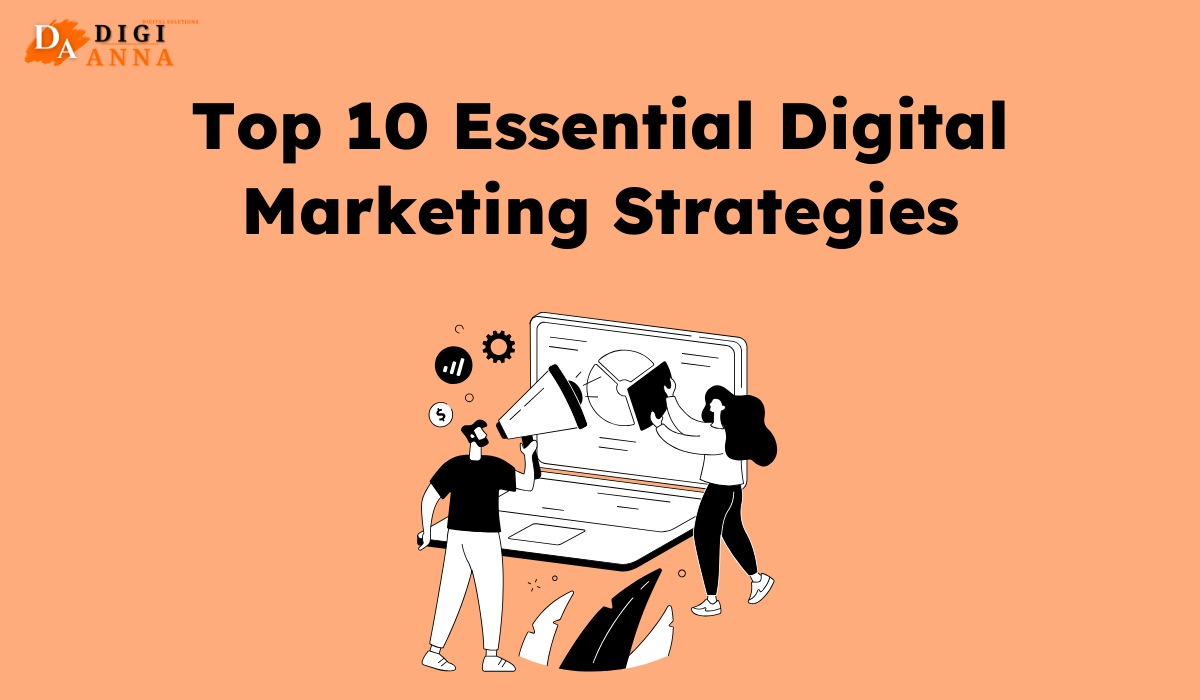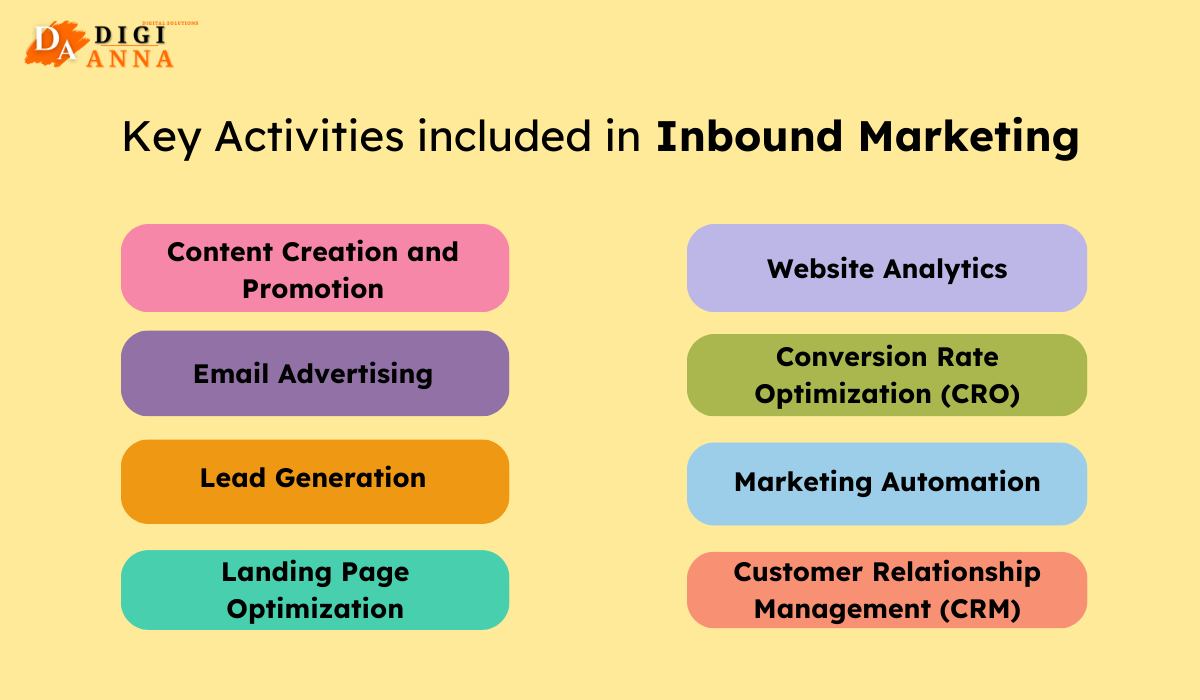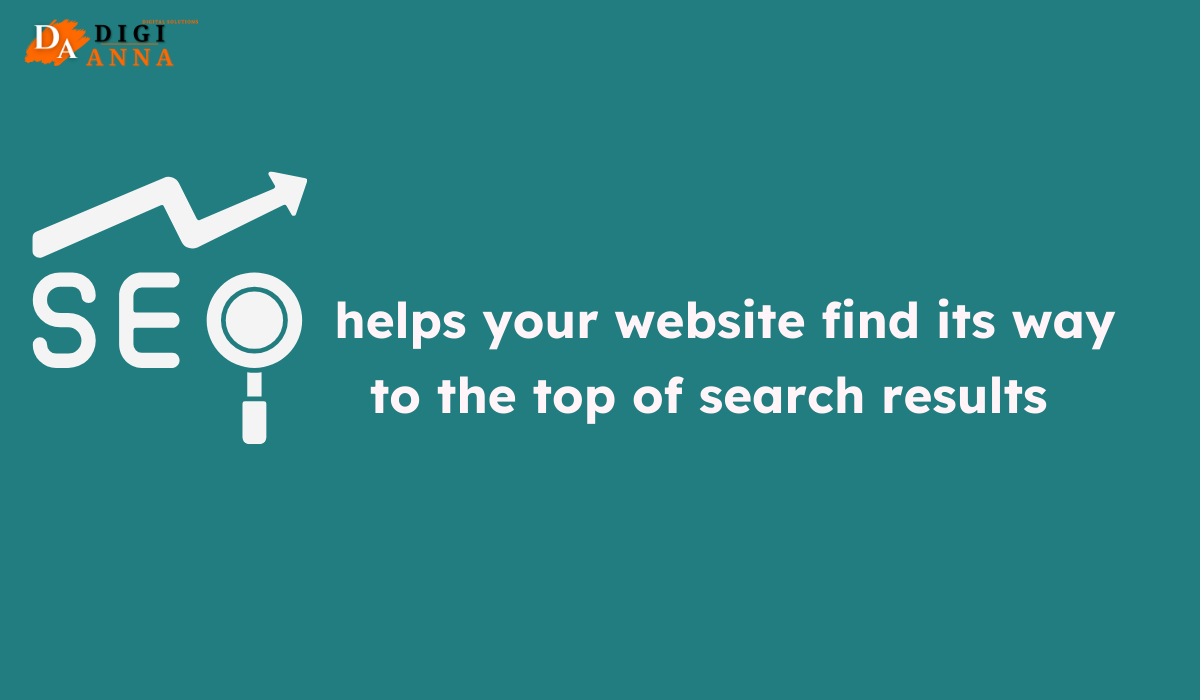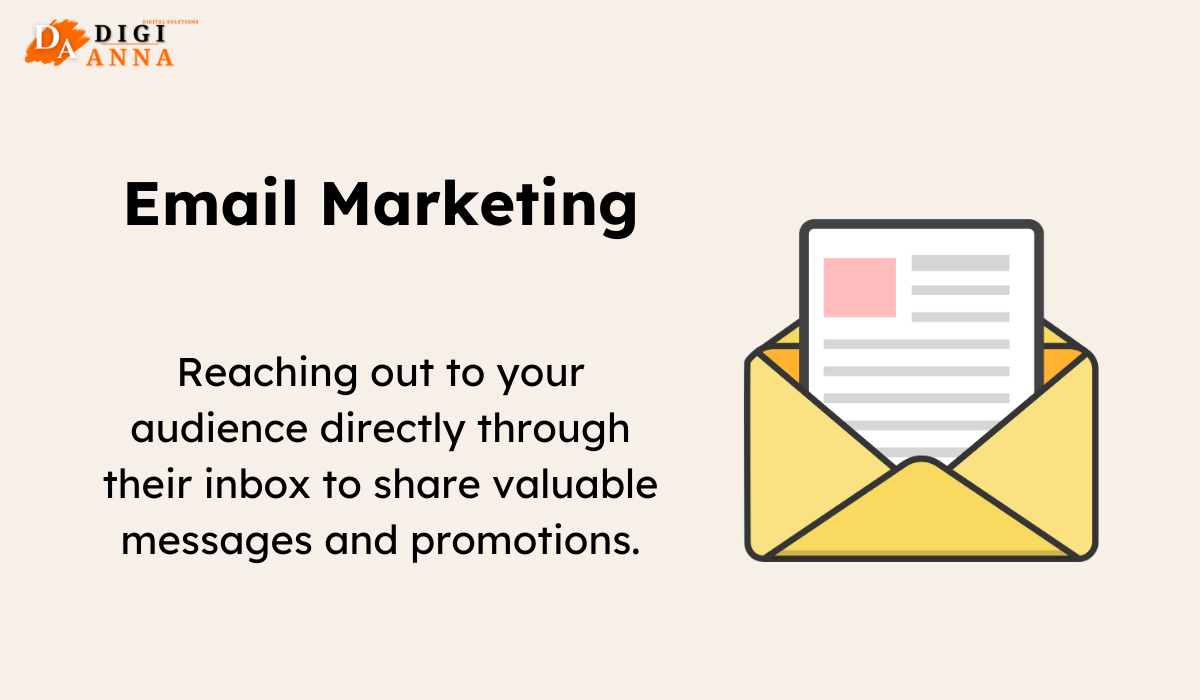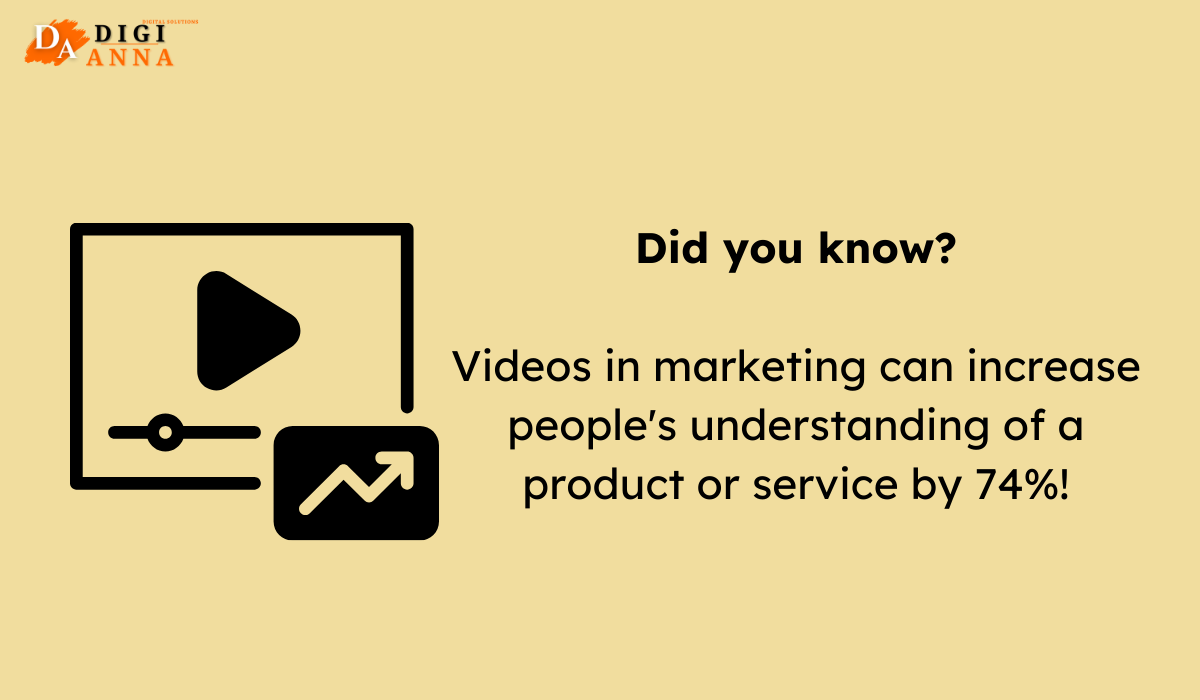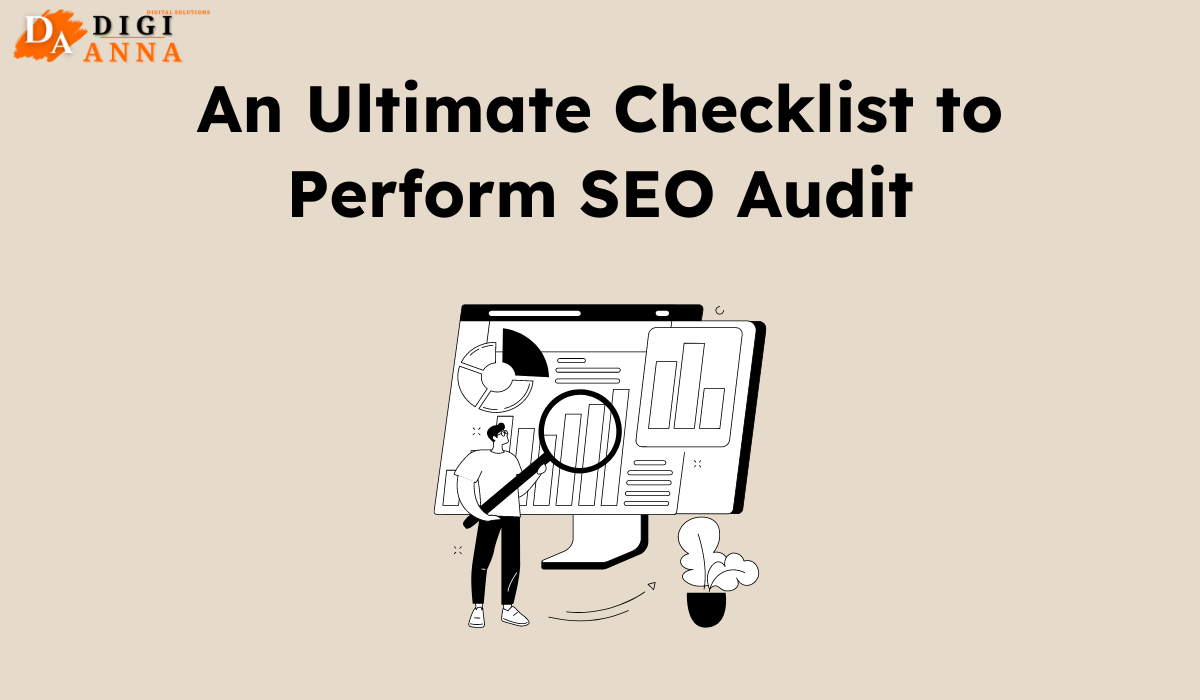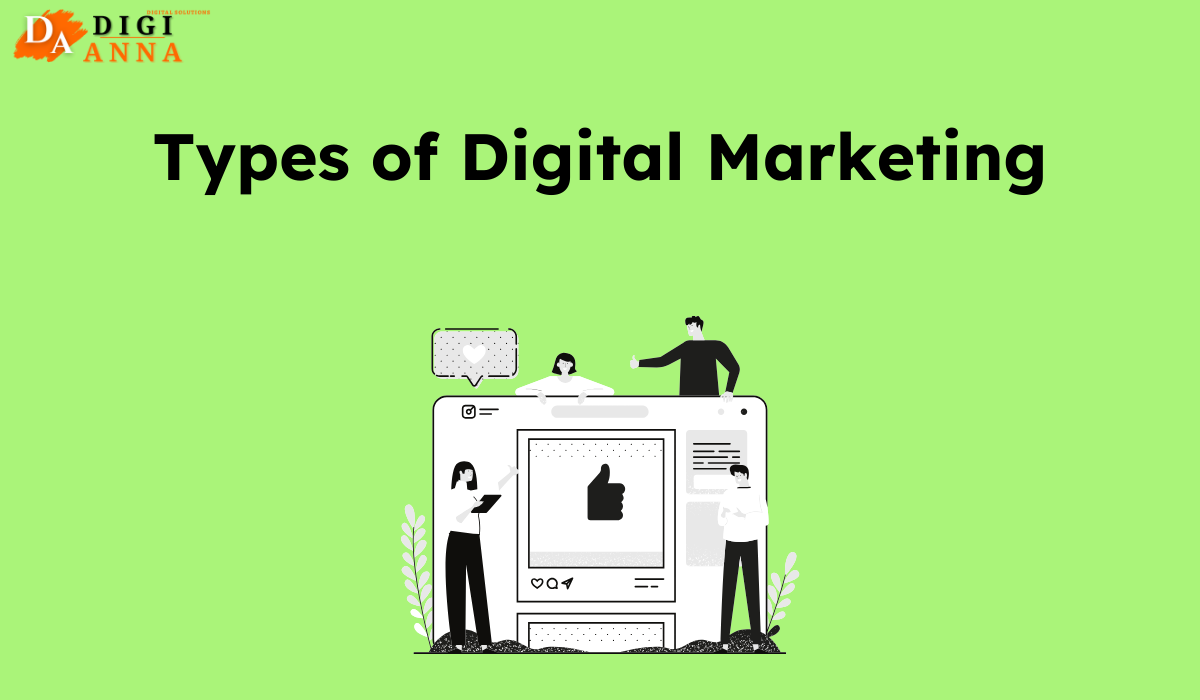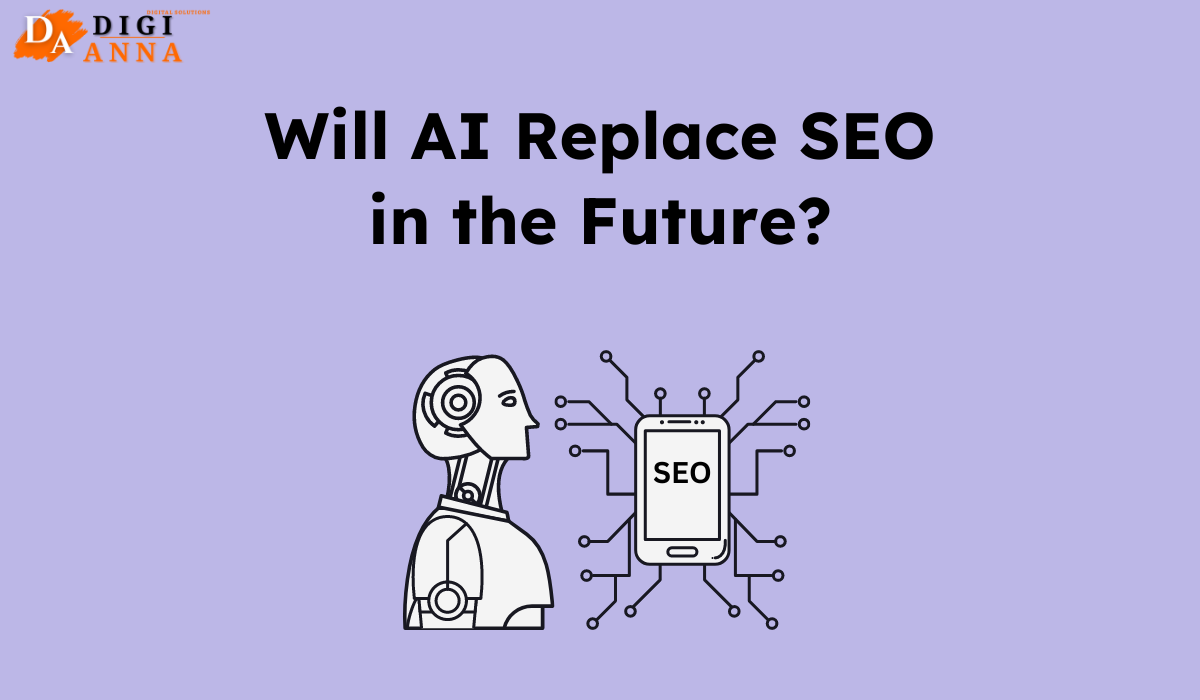Crafting a digital marketing strategy involves planning how to promote products or services online. The digital marketing strategies you implement determine your company’s goals and objectives, such as increasing conversions, audience engagement, and raising brand awareness.
Digital marketing employs various online strategies to promote products or services. An efficient digital marketing strategist can benefit a business’s success by specifying the different digital marketing strategies which can help in expanding customer engagement in the most crowded online marketplaces. However, each marketing strategy has particular benefits, boundaries, and ROI. In this blog, we’ll explore types of digital marketing strategies that yield measurable results.
Types of Digital Marketing Strategies
Plenty of digital marketing strategies exist. Let’s examine the 10 most successful ones currently employed in our industry. Ensure that your brand and message align with whichever strategy you select.
Now, Let’s explore each separately!
1. Inbound Marketing
In Inbound marketing, a marketer relies on the entire ecosystem of digital marketing strategies to convert a website visitor (Traffic) into a potential customer (conversion).
Inbound marketing aims to attract, qualify, nurture, and engage customers actively. Instead of being a one-time task, it involves consistently creating strong, long-term connections with customers.
Why should you use inbound marketing?
- It’s affordable: With inbound marketing, you can spend less and get more in return. You improve your chances of success by targeting specific groups of people instead of trying to reach everyone.
- Gain trust: When customers see that you give them useful information that solves their problems, they trust your company more. This builds credibility and shows you care about more than just making sales.
- Grow relationships: Inbound marketing helps you build strong relationships, increasing revenue and bringing users back for more. Invest in relationships for sustained success.
2. Content Marketing
Content marketing works on providing consumers with answers to their queries and genuine assistance. Instead of disrupting them with unwanted promotions. It contains articles for blogs, landing pages, films, audio podcasts, infographics, white papers, eBooks, case studies, and more. Like other digital marketing strategies it usually helps to,
- Boost awareness of your brand.
- Enhance brand loyalty
- Educate your target audience.
- Nurture and convert leads.
Through content marketing, businesses aim to engage and assist their audience effectively. This strategy focuses on delivering valuable information that addresses consumer needs, fostering trust and loyalty over time.
Why should you use content marketing?
- Strong connections with customers: Through content marketing, you can gradually build connections with customers. Additionally, it pushes them toward the goal, increasing the chance that they will pick you over your rivals when the time comes to make a purchase.
- Search engine optimization: High-quality content significantly improves your website’s SEO, leading to an increase in organic traffic and converting users into customers.
- Establish brand authority: Creating engaging and informative content helps establish your brand as a trusted source in your industry. As a result, your target audience will turn to you for solutions to their problems.
3. SEO
In order to achieve better search engine results and enhance the volume of organic traffic to your website. Search engine optimization, or SEO is amongst the best digital marketing strategies, involves optimizing your website and content. It encompasses various strategies, including:
- Generating high-quality content with focused keywords and customer needs.
- Using high volume keywords.
- Taking care of the density of primary and secondary keywords in the content.
- Avoid duplicity of the content.
- Create Backlinks of high Domain Authority.
- Checking page speed.
- Use of metadata.
- Ensuring that website is mobile-friendly.
Why should you use SEO?
- It improves conversion rate: If your website is mobile-friendly, fast, and easy to use, then ultimately, it is more likely to convert users into loyal customers.
- Raise brand awareness: Users can gain confidence in your brand when your content ranks at the top of search engine results pages (SERPs).
- Long-term savings: A piece of content, once created, should bring in traffic over time. It is not necessary to invest a lot of money to reach users who are actively looking for what you are offering. All you need to focus on, create high-quality content consistently.
4. Social Media Marketing
Social media marketing involves utilizing platforms such as Facebook, Twitter, LinkedIn, and Instagram. Essentially, it forms an integral part of a comprehensive digital marketing strategy in driving business growth. It helps to,
- Promote your content creation, products, and services.
- Raise brand popularity and visibility.
- Acquire more followers
- Engage your existing and potential customers
- Increase traffic to your website.
Why should you use social media marketing?
- Affordable marketing: You can take advantage of social media marketing to bring your audience to your brand even when they aren’t aware of it with a relatively small budget.
- Engagement from the audience: Select a suitable channel, educate yourself on the ins and outs of the advertising platform, and make the most of the opportunity to interact with your audience directly.
- Strong brand loyalty: People who interact positively with a brand on social media are more likely to tell others in their network about it.
5. Email Marketing
To develop relationships with your audience, convert leads into customers, and turn one-time customers into loyal customers, email marketing is one of the effective digital marketing strategies which involve the process of sending promotional and informative emails
Why should you use email marketing?
- Your website traffic: In your emails, link to specific web pages on your website. Key performance indicators include the open rate (the number of users who open your email) and the click-through rate (the proportion of users who open the email and click on a link).
- Financially efficient: Email marketing is more economical than other marketing techniques like direct mail, SEM, or SMM.
- Deliver targeted messages: Every person on an email list wants information. The fact is, they want to hear from you! We can send them targeted information by further segmenting your subscribers.
6. PPC Marketing
Pay-per-click marketing, also known as PPC, charges advertisers every time a user clicks on their online ads. This digital marketing strategy utilizes platforms like Google Ads, Bing Ads, or other search engines. It’s a great way to engage with potential customers searching for terms related to your company.
When users click on PPC ads, they go to particular landing pages on a website. These pages prompt them to take certain actions such as:
- Purchase something
- Fill out the form.
- Save a report or anything similar.
Increasing sales or leads is your primary objective for running a PPC campaign.
Why should you use PPC?
- Simple to track: You may monitor how many people spot your ads, click on them, and how many clicks result in sales using a PPC platform like Google Ads. You’ll be able to estimate the success of your campaigns immediately.
- Controlled spend: Pay-per-click advertising is spending on ads. You aren’t required to pay a specific amount for advertising. Instead, you can change or stop unsuccessful ad campaigns.
- Quick results: Other digital marketing strategies, such as content marketing and SEO, need time to become effective. However, PPC marketing provides an immediate way to create a campaign and get results instantly.
7. Video Marketing
Product demos, expert interviews in your industry, consumer feedback, and how-to films are all types of videos you can use to market your products, services, and brand. You can boost conversions and sales by including these amazing yet effective digital marketing strategies like videos on your website, PPC landing pages, or social media platforms.
KPIs may include:
- Engagement: How long do people spend watching it?
- View Count: How many times do people watch it?
- Click-Through Rate: How many people visited the site after clicking?
- Conversion Rate: Number of potential customers or clients that the content attracts.
Why should you use video marketing?
- Better SEO: A video on a website helps in improving SEO, which increases the page’s ranking, giving companies a higher chance of appearing on the first page of Google results.
- High conversion rates: Adding videos to landing pages can increase conversion rates.
- Increase brand recognition: In addition to higher conversion rates, seeing a video boosts brand association. Consumers who see a video also share it.
8. Online and Offline Events
Hosting an event is an excellent method to generate buzz around a product. Even if you worry about meeting engagement targets, digital marketing strategies, like events, provide valuable insights. Launching your new product, service, or business line becomes more manageable through these strategies. Plus, incorporating such approaches can create excitement and anticipation among your target audience.
Why should you consider events?
- Generate interest: Use social media posts to create curiosity among your audience about your upcoming launches.
- Present your product: The main focus will be on presenting your product. Use your enthusiasm to share a story about its features.
- Increase conversion rate: To boost your conversion rate you may consider a few tactics. One option is to live stream the event, which can generate buzz and get people talking about your product. Additionally publishing a press release can help spread the word and create awareness. Creating a hashtag, for the occasion and aiming to make it trend on Twitter can also give a boost to your conversion rate.
9. Chatbot and Live Chat Marketing
Over the past decade, the number of chatbots and messaging apps has increased. Now, people widely acknowledge them as effective digital marketing strategies and customer support tools. Companies can use chatbots to:
- Address customer complaints
- Respond to queries regarding products
- Promote live events
Why should you use chatbots?
- Give prompt answers: When people are online, they often need immediate solutions. Chatbots step in to help, providing instant assistance and resolving issues promptly. It increases customer satisfaction with the company.
- Enhance the user experience: Chatbots improve user experience by providing instant assistance and personalized responses.
- Promote your products and services: Using chatbots, you can promote your products and services. Moreover, some people even utilize chatbots to make purchases or gather information before buying. Engaging potential customers and driving sales becomes more effective through this method.
10. Earned Media
Simply put, earned media refers to articles written by third parties about your company, products, or activities and published on their website without any payment on your part. In terms of digital marketing activities, it’s easiest to think of it as PR that involves media outreach.
Why should you use earned media?
- Free: The publicity you get from 3rd party websites is free until you have paid your team or an agency to promote your content. As a result, it saves resources for upcoming promotions.
- It is flexible: From a simple strategic move, like providing quotations on a current issue to a newswire, to a larger creative campaign, like creating a website or conducting a survey. Anyone can deliver earned media.
- Effective SEO: It can be extremely valuable to get backlinks to your website from credible sources. Google indexes websites based on their domain authority (DA), and sites with higher DAs can help your website rank higher.
How to Develop Digital Marketing Strategies that Really Work?
Now, It’s time to put everything together and create an excellent strategy. No matter which of the above-discussed digital marketing strategies you decide to use, it’s necessary to set your objectives, target audiences, and relevant content.
You are just a few steps away!
1. Define objectives and goals
Start by defining your short- and long-term goals before choosing a suitable strategy from various digital marketing strategies. After selecting a plan, outline specific objectives to evaluate its effectiveness. Moreover, in order to achieve success, your goals and objectives must be SMART (specific, measurable, achievable, relevant, and timely).
2. Think of customer profiles
You can create effective digital marketing strategies by gaining a deep understanding of your target audience. Buyer personas are instrumental in this process but must be based on thorough research and factual data. Supporting evidence ensures that your intuition-driven personas align with the right strategy. To achieve this, conducting in-person, app-based, or telephone interviews and surveys with your customers is essential.
3. Audit your assets
Gathering all your existing online resources helps you understand exactly what your company possesses. Subsequently, examine each asset and prioritize them from the most to the least important. It makes it easy for you to identify which assets you can improve and which ones you need to rebuild completely.
Let’s undertake an audit of SEO-focused content.
- Website Crawl: Start by crawling your website. Create a list of all the URLs you find, including blogs, category sites, and any other relevant pages.
- Identify Content Gaps: Pinpoint any gaps in your content. Consider your target audience and campaign goals. Look for missing topics or areas that need more coverage among the URLs you’ve gathered.
- SEO Analysis: Conduct an SEO analysis to assess the current URLs’ effectiveness. Check for keyword optimization, meta tags, and other SEO factors.
- Accumulate the data: Collect all the data you’ve gathered into a spreadsheet. It easily compares essential details like traffic, engagement, and keyword rankings.
- Task Generation: It includes brainstorming ideas to enhance existing pages and designing a plan for developing new content.
4. Make a plan for your content generation
Moving on to the next stage in crafting successful digital marketing strategies leads us to content creation. Once we know what content we need, we’ll then figure out how to prepare and present it. While doing this, you need to consider various factors:
- Spending Expenses: Assess the budget allocated for content creation.
- Resource Allocation: Determine the human and otherwise resources required for the content creation process.
- Efforts: Consider the level of effort needed to produce the desired content.
- Selection of Software/Tools: Choose the specific software or tools that will aid in content creation.
- Due Dates: Keep in mind the deadlines for delivering the content.
Consider all these aspects, then finalize your plan to create a particular type of content and identify any extra resources required to ensure its quality.
5. Choose an outreach strategy for your content
Once you determine the target audience and content creation is underway, the next step in developing a digital marketing strategy involves choosing how to share your content. This includes distributing it through various channels:
- Owned: You own the channels, websites, blogs, emails, and social media.
- Earned: Content that 3rd parties share, like, comment on, or write about.
- Paid: Paid promotion of the content, such as PPC and endorsements.
6. Determine your KPIs
Regularly evaluate your digital marketing strategies. Determine your measurable key performance indicators, or KPIs, and indicate how well your plans are working.
KPIs include:
- Conversion Rates
- Charges per Lead
- Monitoring Traffic
- Click Through Rates
- User Lifetime Values
After the marketing campaign, you should bring together everyone involved for a meeting to review the campaign’s successes and areas for improvement. Use this information to form your next digital marketing strategy.
In a Nutshell!
Keeping up with the newest trends in the world of digital marketing can be thrilling since the field is constantly evolving. Creating captivating content and cutting through the noise can be challenging as well. Since your audience may be targeted by dozens or even hundreds of different businesses, developing digital marketing strategies to overcome the competition makes sense.
Therefore, don’t be scared of trying something new or tossing out an idea that doesn’t work. One of its best features is that digital marketing strategies and their ROI are promptly measurable. Focus on what is effective and discard what is not.

